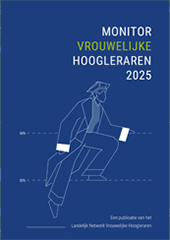Oratie C.J.M. Millar-Schijf
Entangling spirits and spectres: Marketing and intangibles (Witte Wieven strikken...)Samenvatting: Understanding intangibles offers insights into marketing and management that are important both for theory and for management practice.
At the level of management practice I have highlighted three areas which will be of increasing importance if we are to progress successfully in international management and marketing: how to manage the non-economic relationship between provider and consumer which is essential to tacit knowledge transfer; how to manage the role of intermediaries, particularly knowledge intermediaries; and how to manage governance of businesses and other organisations whose value is in the knowledge they possess, not in the tangible assets on their balance sheets.
Such insights and approaches yield a range of areas for applied management research and theory. The understanding of mental intangibility and how it is overcome; the knowledge asymmetry situations that arise for experience, credence and societal goods; management research on motivations of, and alliances amongst intermediaries; and holistic measurement and ethical issues. And at an academic level, I believe there is still important work to be done on the theoretical underpinning of this area – through further analysis of knowledge itself, a better approach to the search for a means of valuing intangibles, from brands to latent capabilities, and further study of information asymmetry and its impact on transactions, trust and relationships inside and outside the company.
In travelling this road I have been assisted by insights from marketing, a discipline which has had to face up to a subset of these problems for many years. In return this linkage may throw new light on some familiar marketing concepts; for instance revealing advertising as a form of knowledge intermediation, positioning brand identity and personality as aspects of the thrust to create an interactive holistic relationship with the consumer. This holistic perspective and the consumer-oriented starting point, which are the essence of marketing, can continue to contribute, not only to the selling of light bulbs and soap powder, but also to the development of a knowledge based society where universities, multinationals, NGOs, researchers and even governments can co-create sustainable value along with their students, consumers, clients and constituents.


